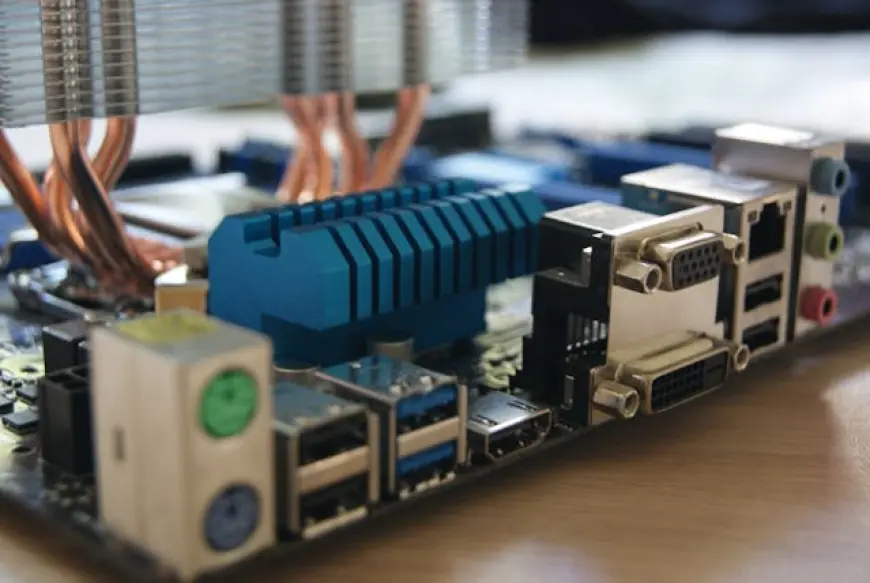6 Types of IT Managed Services You Should Know About

In today’s fast-paced digital world, businesses rely heavily on technology to operate efficiently. However, managing IT infrastructure, security, and operations can be complex and time-consuming. This is where IT Managed Services come into play. These services allow businesses to outsource their IT operations to specialized providers, ensuring smooth, secure, and cost-effective technology management.
Managed Service Providers (MSPs) offer a range of IT solutions that help businesses focus on their core operations while reducing downtime and security risks. Understanding the different types of IT Managed Services is essential if you are considering outsourcing your IT needs. This guide will provide valuable insights into six crucial IT Managed Services businesses should know about.
1. Network and Infrastructure Management
A company’s IT network is its backbone, supporting everything from internal communications to customer interactions. Network and infrastructure management is a critical managed service that ensures your systems remain operational, secure, and up to date.
What It Includes:
• Continuous network monitoring to detect and resolve issues before they become significant problems.
• Managing routers, switches, servers, and other hardware to ensure optimal performance.
• Implementing network security measures such as firewalls and intrusion detection systems.
• Optimizing bandwidth usage to enhance speed and efficiency.
• Regular maintenance and software updates to prevent vulnerabilities.
Why It’s Important:
Businesses risk downtime, security breaches, and poor system performance without a well-managed network. MSPs help ensure your IT infrastructure remains reliable and efficient, reducing operational disruptions.
2. Security Management
Cybersecurity threats are increasing in complexity, making it essential for businesses to have robust security measures. Security management services protect organizations from cyberattacks, data breaches, and unauthorized access.
What It Includes:
• Real-time monitoring and threat detection to identify security risks.
• Firewall and antivirus management to prevent malicious attacks.
• Data encryption and access control to safeguard sensitive information.
• Security audits and vulnerability assessments to identify potential weaknesses.
• Compliance management to ensure adherence to industry regulations such as GDPR, HIPAA, and PCI DSS.
Why It’s Important:
A security breach can result in financial losses, reputational damage, and legal consequences. Outsourcing security management to an MSP, businesses can proactively protect their data and operations from evolving threats.
3. Cloud Services Management
Cloud computing has revolutionized business operations, offering flexibility, scalability, and cost savings. However, managing cloud infrastructure can be complex. Cloud services management ensures businesses can leverage the benefits of the cloud without the technical challenges.
What It Includes:
• Cloud migration services to move applications and data securely.
• Managing cloud-based applications such as Microsoft 365, Google Workspace, and AWS.
• Optimizing cloud storage and computing resources to reduce costs.
• Data backup and disaster recovery solutions to prevent data loss.
• Security monitoring for cloud environments to prevent unauthorized access.
Why It’s Important:
Cloud computing enhances collaboration, remote work, and business agility. With expert cloud management, businesses can maximize efficiency while minimizing downtime and security risks.
4. Communication Services
Effective communication is vital for any business. Managed communication services help companies maintain reliable and secure communication systems, ensuring seamless collaboration among employees, customers, and stakeholders.
What It Includes:
• VoIP (Voice over Internet Protocol) systems for cost-effective phone services.
• Video conferencing solutions for remote collaboration.
• Email hosting and management for secure and efficient communication.
• Instant messaging platforms for real-time business communication.
• Secure file-sharing solutions for efficient document collaboration.
Why It’s Important:
A well-managed communication system enhances productivity, improves customer interactions, and supports remote work capabilities. MSPs ensure that businesses have reliable, scalable, and secure communication tools.
5. Data Analytics and Management
Data is one of the most valuable assets for modern businesses. Managed data services help companies collect, store, analyze, and secure their data, enabling them to make informed decisions.
What It Includes:
• Database management to ensure structured and efficient data storage.
• Big data analytics to identify trends and business opportunities.
• Data backup solutions to prevent data loss.
• Compliance with data protection regulations.
• Implementation of business intelligence tools to generate reports and insights.
Why It’s Important:
Businesses that leverage data effectively gain a competitive advantage. Managed data services help organizations optimize decision-making, improve customer experiences, and drive revenue growth.
6. IT Support Services
Technical issues can disrupt business operations and lead to costly downtime. Managed IT support services provide businesses quick and reliable assistance to resolve IT-related problems efficiently.
What It Includes:
• 24/7 helpdesk support for troubleshooting and technical assistance.
• Remote IT support to resolve issues without on-site visits.
• Hardware and software maintenance to prevent failures.
• Regular system updates to keep technology up to date.
• IT training and support for employees to improve efficiency.
Why It’s Important:
With a dedicated IT support team, businesses can minimize downtime, resolve issues faster, and enhance overall productivity. This service ensures that employees have the technical support to perform their tasks effectively.
Conclusion
IT Managed Services have become an essential component of modern business operations. By outsourcing IT functions to specialized providers, businesses can enhance security, improve efficiency, and reduce costs. Whether managing network infrastructure, securing data, optimizing cloud services, or providing IT support, MSPs are crucial in helping businesses stay competitive in a technology-driven world.
Understanding these six types of IT Managed Services allows businesses to make informed decisions about their IT strategies. Investing in the right managed services ensures a secure, efficient, and scalable IT environment that supports long-term success.
Evaluating your specific needs and partnering with a reliable MSP can be a game-changer if your business is considering IT Managed Services. Companies can focus on growth, innovation, and delivering exceptional customer value by leveraging professional IT management.












